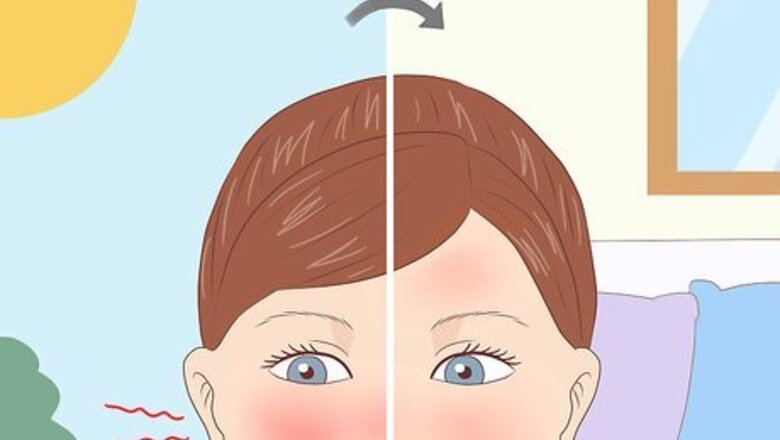
views
X
Research source
The damage to your skin, however, is longer lasting, which is why it's so important to care for your sunburned skin and treat it properly. Here, we've gathered some of the most important tips you can use to treat your sunburned face, from the moment you realize you're burned until the symptoms go away, as well as what you can do to keep it from happening again.
Get out of the sun immediately.
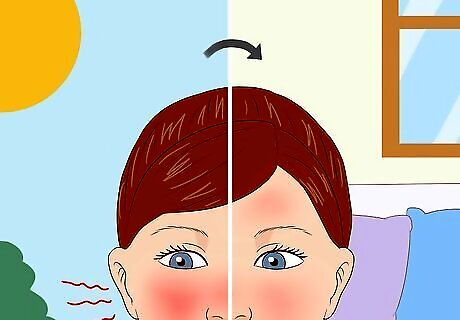
Go inside as soon as your face starts feeling warm or tingly. If you feel like your face is burning, don't take any chances. It can take some time before it starts to look burned, so trust your instincts. Seek shelter to keep the problem from getting any worse. If it's not possible for you to go indoors, at least try to find complete shade or shelter somewhere. For example, if you're on the beach, start looking for an umbrella or some shade, at the very least.
Seek medical treatment if you have a fever.
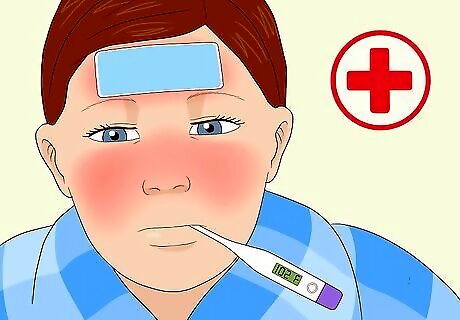
A fever can be a sign of heat exhaustion or sun poisoning. Other symptoms include nausea, rapid pulse, rapid breathing, extreme thirst, and feeling faint or dizzy. If you're having any of these symptoms, get to a doctor immediately. Be ready to tell the doctor how long you were in the sun and what, if any, protection you used. If you're not feeling well enough to discuss your condition, you might want to have a friend or family member come along with you.
Drink extra water.
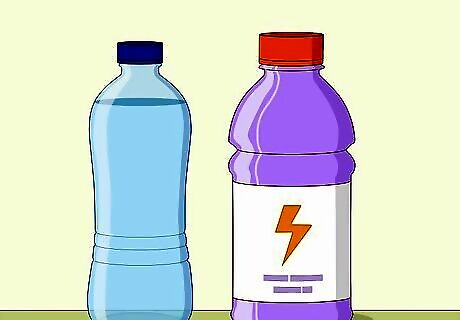
Sunburn draws fluid to the surface of your skin, causing dehydration. Because of this, you'll find that you need to drink more water than you usually do to make sure your body is getting enough fluids. Drinking sports drinks can also help replenish electrolytes and help your skin heal more quickly. Pay attention to the color of your urine to make sure you're drinking enough water. It should be either clear or a pale yellow color if you're properly hydrated. Keep this up the entire time you have symptoms of sunburn (usually about a week). Making sure you stay well-hydrated keeps your skin as healthy as possible and might ease your symptoms.
Splash your face with cool water.
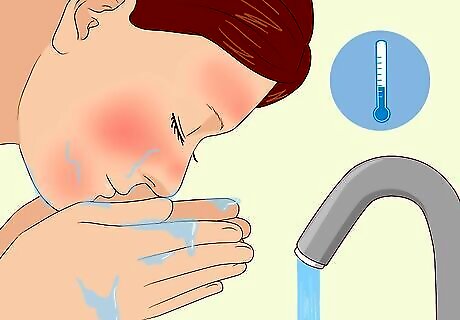
Cool water helps calm your skin and reduces the pain of a sunburn. You can also soak a washcloth in cool water and hold it to your face. Remove the cloth as soon as it gets warm. When you're done, gently pat your face dry. Don't rub or scrub your face, which can irritate your skin even more. If other parts of your body are also sunburned, you might want to take a cool shower instead. That'll cool off your entire body and help ease the sunburn reaction.
Clean and moisturize your face.
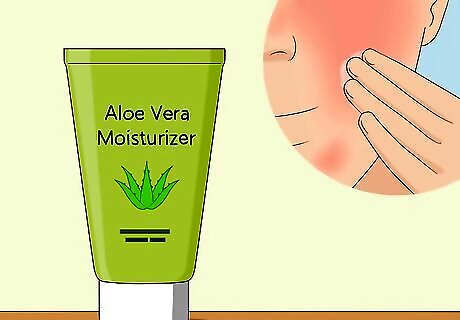
A moisturizer with aloe vera will help calm the inflammation. Wash your face with a mild facial cleanser and cool water. Gently pat it dry, leaving a little bit of water still on your skin. Dab the moisturizer onto your skin gently, rather than rubbing it. Vigorous rubbing can cause further damage to your skin. Reapply every hour or so, as needed, if your skin feels dry to the touch. Sunburn dries out your skin, so you might find that you need to moisturize more often than you normally do. Creams with vitamins C and E might also help limit the damage to your skin. Avoid products with names that end in "-caine," because they can further irritate your skin and might cause an allergic reaction. Make sure you wash your hands before applying moisturizer, especially if your skin is cracked or peeling—you don't want to risk introducing bacteria.
Take an NSAID pain reliever.
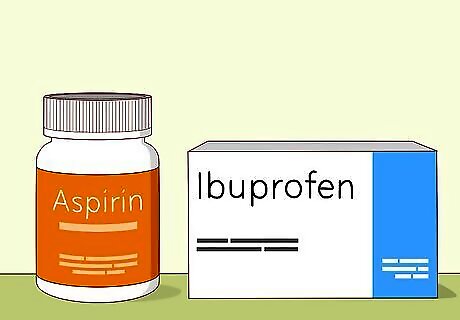
Ibuprofen, aspirin, or acetaminophen reduce inflammation. Taking one of these over-the-counter remedies as soon as you notice that you're sunburned might control your symptoms and make them less severe. Continue taking the medication, following the instructions on the package, as long as you're feeling pain or inflammation from your sunburn. Don't take NSAIDs if they might interfere with medications you're taking for another medical condition. If you're not sure, call your doctor and ask.
Try a milk compress to soothe your skin.
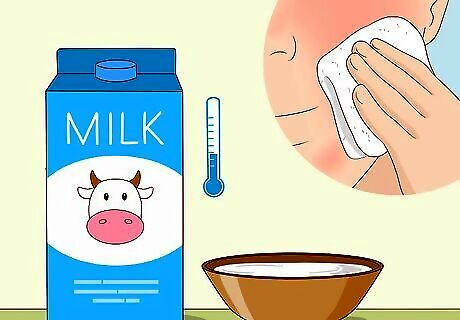
Soak a washcloth in cold milk and apply it to your face. Wring the cloth out to get rid of excess liquid, then leave it on your face for 10-15 minutes. The milk creates a protective layer on your face that helps to cool and heal your skin. This treatment is safe to use whenever you want. If you get benefit from it and it makes your face feel better, you can even do it several times a day.
Avoid the sun until your skin is healed.
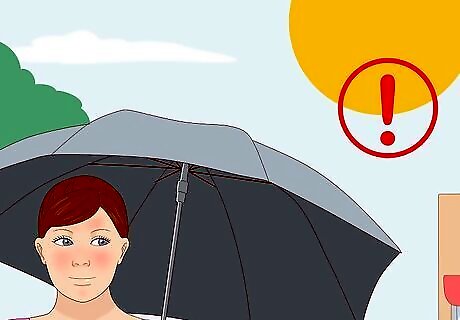
It can take up to 7 days for your skin to heal. Additional exposure to the sun, even while wearing sunscreen, can exacerbate your condition if you've already been sunburned. If you have no choice but to go outside, wear a wide-brimmed hat to shield your face completely (you might also consider carrying an umbrella) and don't stay in the sun any longer than you have to. You're still getting sun exposure even if it's overcast. Protect your skin while it's healing whenever you're outside—not just on bright, sunny days.
Moisturize peeling skin twice a day.
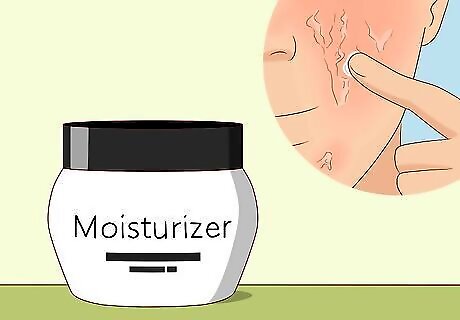
Regular moisturizing enables peeling skin to heal faster. If your skin starts peeling, it's in the last stages of the healing process. Help it along by continuing to wash it gently and liberally apply moisturizer. It can be tempting to exfoliate or attempt to remove peeling skin, but it's better to leave it alone. Although it might look unsightly, it will naturally slough off as your skin heals. Remember—this only lasts a few days. Just try to be patient.
Use a corticosteroid cream for pain and itching.
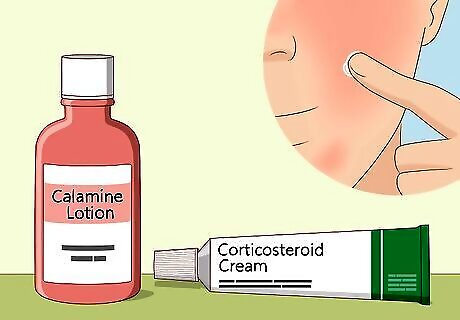
Buy corticosteroid cream at your local pharmacy. After washing your face, apply a thin layer of the cream to the burned areas of your face. Allow the cream to dry, then add a layer of moisturizer. Calamine lotion can also be soothing, especially if your face starts itching in response to the sunburn.
Take an antihistamine for itching.
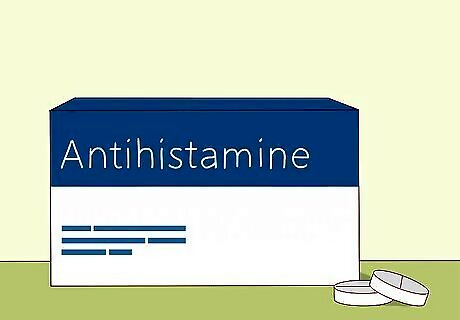
Follow package instructions for antihistamine dosages. After a couple of days when your skin starts to heal, it will likely start itching. It can be really hard not to scratch, but scratching it will only delay the healing process. An antihistamine can help stop the itching sensation so you won't be tempted. Antihistamines can be particularly helpful at night when you go to sleep, because you won't be able to stop yourself from scratching your face in your sleep.
Don't pick at blisters.
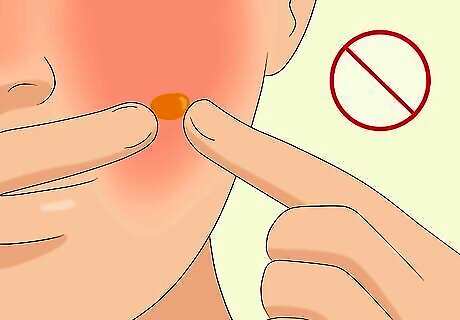
Blisters form to protect healing skin so it's best to let them do their job. Skin that is in the process of healing after a severe burn is much more delicate than the normal skin on your face. If you have blisters, they're there to cover and protect that skin so that it doesn't become more damaged. When you pop blisters, you risk infection and also delay the healing process. Don't use petroleum jelly (Vaseline) or any other oil-based ointments or creams on sunburned skin, especially if you're blistered. They can block the pores and lead to infection.










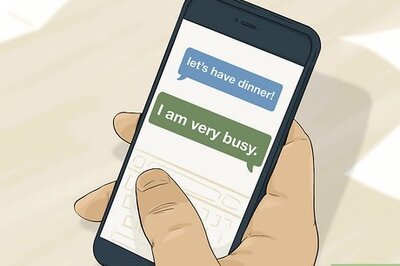









Comments
0 comment